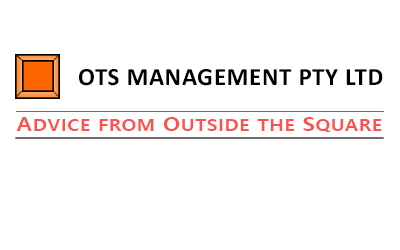Business today is in a disruptive phase and small business owners cannot avoid the disruption.
Changes to business models and industries have been caused by technology (the move from the use of desktop PC's to mobile technology), the sharing economy (Uber and Air BNB), the platform model (Trip Advisor, Hotels.com), international trends like the Coronavirus pandemic and the rise and fall of new and old industrial giants.
In a small business, for example, if you ignore mobile technology and focus your website to the PC, customers used to scrolling through sales sites on their phones will turn away from old-fashioned websites that don't respond to their phone screens.
Even in a small business, if you are in a disrupted industry, you will have to act to meet disruptive change head-on, or risk becoming a minor competitor to leading businesses in your industry.
It's not that small business owners can't see disruptive change happening - we complain about it all the time.
But what we don't do, is spend enough time thinking about what we can do in the situation.
At the height of the Coronavirus pandemic, as businesses had to face disappearing markets, many small businesses found that they had to adapt or go out of business.
When your back is up against the wall, you have to think about the situation or go to the wall!
In that period, we saw restaurants offer home delivery services (delivered by their former front-of-house wait staff), we saw theatrical stage set manufacturers turn out flat-pack work-from-home furniture, we saw clothing manufacturers produce PPE, we saw industrial pump manufacturers make respiratory pumps.
The problem is not that we can't see it coming. The problem is that we don't spend time thinking about our capabilities until we really have to. For those examples above, it wasn't too late - for others it was.
In any normal, given day, you take time to think about the capabilities of your employees.
If you hire someone to do a job, more often than not they will do parts of the job well, other parts passable, and also show a great extra capability to do other tasks and expand their roles.
Without hesitation you think about how you can adapt your employee - you change something in the job so that their weaknesses are catered for without hurting the business. You adapt the role so that their extra capabilities are taken advantage of by the business.
Yet we don't do this for the capabilities of the business itself to see what old markets we should get out of and what new products or markets we could exploit.
Your business capability is actually made up of three things:
- Tangible and intangible resources - its people and their experience; cash, equipment and technology; design, proprietary knowledge and the recognised brand.
- Processes - the business routines, ways of doing things, logistics and internal abilities to adapt
- Values - the way you set priorities in the business, that in turn allows independent thinking appropriate to each level; definitions of what is okay to do and what you do not do
More often than not, when we do spend time thinking about how we can do things differently in our business and about what new markets or products we may develop - we think about our resources only.
We ask ourselves questions like what are our people capable of doing new? How much can we afford to invest? What will customers knowing our brand buy from us and what will they not?
In fact, that is how most small businesses develop, and why they plateau.
Usually, a business is launched using resources - perhaps the main resource being the owner who is an expert in the field. The business is launched based on that expertise.
After some time, the capability of that resource flames out. There is no development of the product or the introduction of really different products outside of the expertise of the owner.
So the business plateaus and any growth in sales is purely based on the volume of sales, not the expansion of sources of income. In time, this will just run out because there are only so many units of the one product you can sell to your finite market.
However, the exploration of processes and values can introduce really disruptive changes internally to find new products and new markets.
Examining your processes can yield new ideas about what those processes can be adapted to do.
Understanding your values can show you what you can and cannot do.
In the example of StageKings, the company was started to build stage sets for the event industry. However, when the Coronavirus basically shut down their business, they thought about their capabilities and realised that the equipment used to manufacture stage sets could be used to manufacture flat-pack furniture. And not just furniture - but furniture most needed at that time, work-from-home furniture.
Gekko Systems was a mining services manufacturer when the pandemic struck and they realised their core capabilities in resources, processes and values were exactly what was required to manufacture ventilators. Using its existing equipment, processes and manufacturing experience, the company originally pivoted to do something positive for the community and now finds that there is the potential for international sales.
People who read about Stagekings and Gekko Systems go through "why didn't I think of that?" moments but the reason they did not think of that is that they are in sustain-mode.
Most businesses are in the mindset of "sustain" - how can we sustain our operating model and customer base? How do we not lose business? How do we do what we do well?
Not that there's anything wrong with that but when there is a disruption in the market, it's not sustainability that is required, it's a revolution that is necessary.
Disruptive innovation is about looking outside the square from inside the square, and finding new markets through adapted or new products.
In order to then exploit these new opportunities, existing capabilities in your resources, processes and values can be developed by creating teams or new structures and allowing them to think through the situation.
In order to open up your mindset to meet disruption head-on, change the questions you are asking. Instead, ask yourself:-
- What resources do I have, both tangible and intangible?
- What processes are we good at, how do we interact, communicate and co-ordinate to turn resources into products of value?
- What are our values? What do we prioritise and value and what does that mean we can adapt and what should we draw the line at?
- How can this capability triad be used in the state of our industry? What other industries might their use be suited for? How can we do what we do differently?
- Using our capability, what products can we produce that are parallel to ours? What products can we produce that are different from ours?
- What are the needs of our current market?
- What are the needs of new markets that our capabilities can exploit?
- What gaps are there in those markets?
In order for your small business to grow, if not to survive in a market where nothing is certain, you need to meet this challenge.
Those businesses who keep trying to be the best in what they do may well find that what they do is not needed anymore because people, and their customers, have moved on.
If you would like to have a conversation about how your business can start to think about change, contact us using the Contact Us link on our website, or call Teik on 08 9242 2085.
You can also download our free eBook on business success called "Business Isn't Just Numbers". Go to our website at otsmanagement.com.au for even more free resources.




